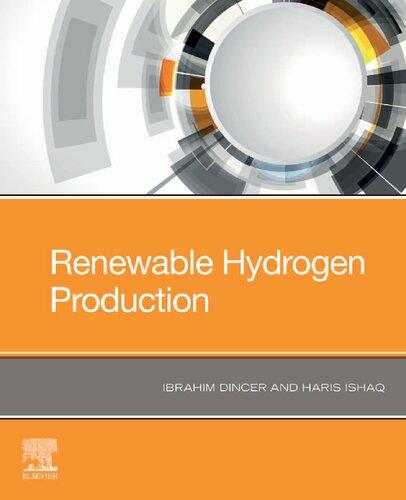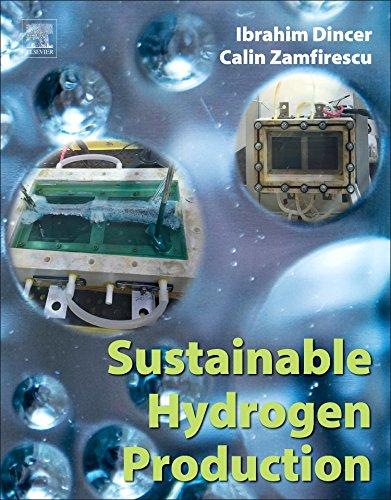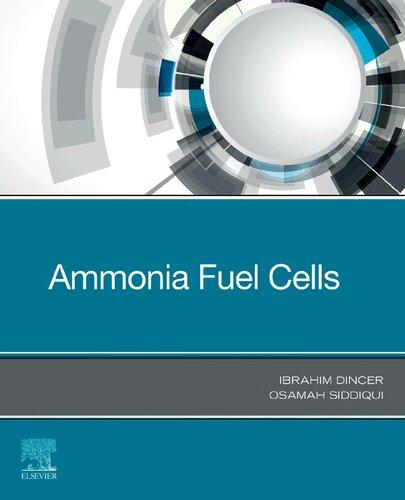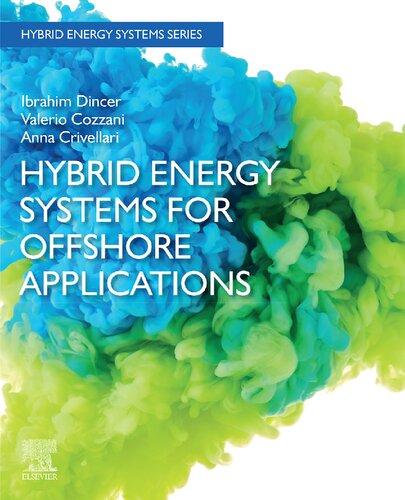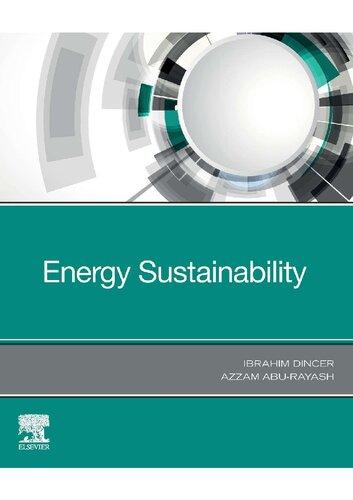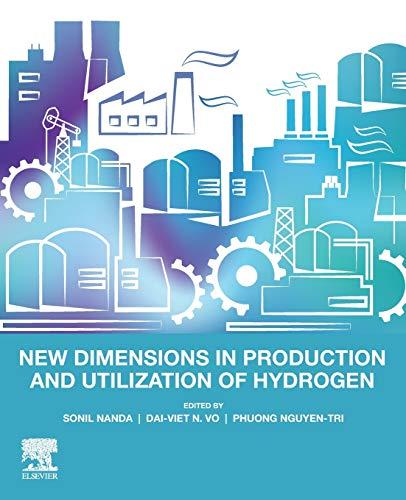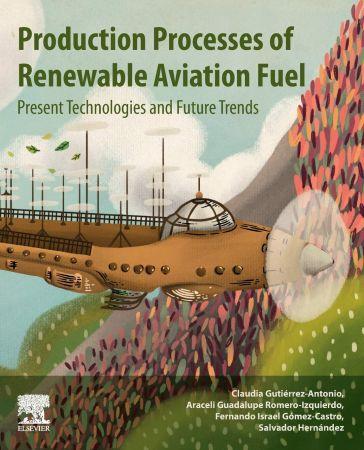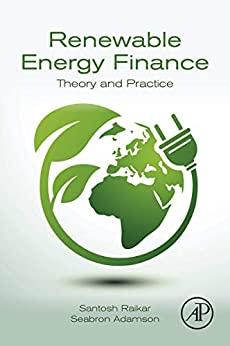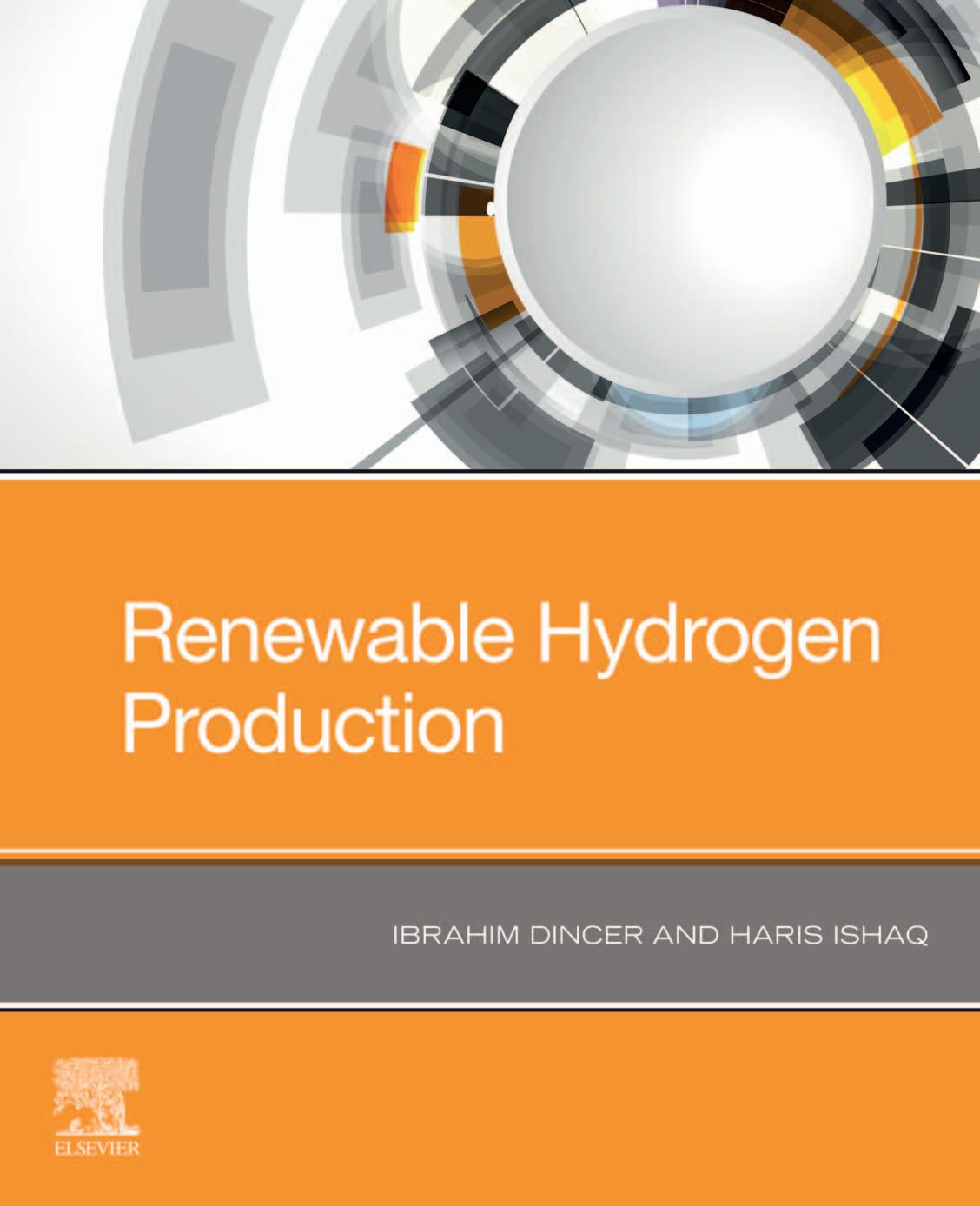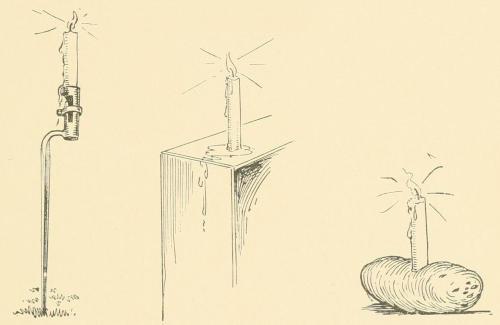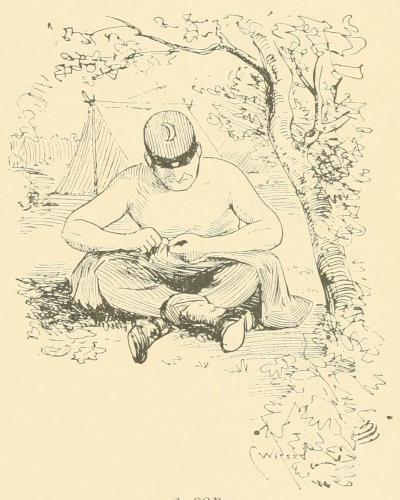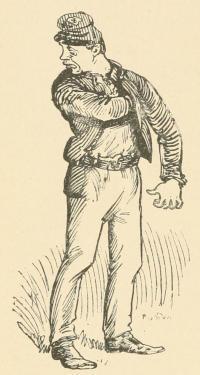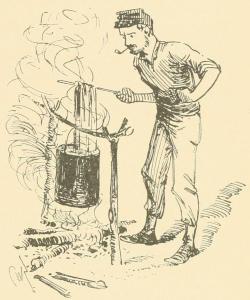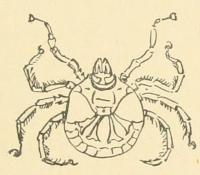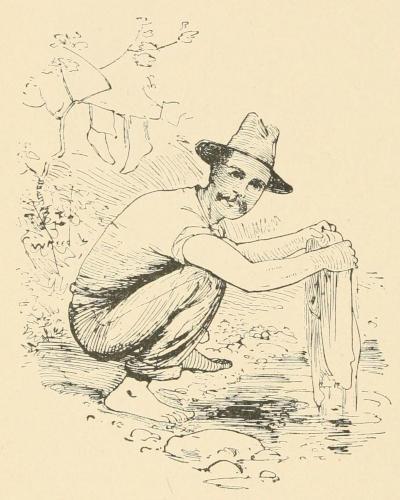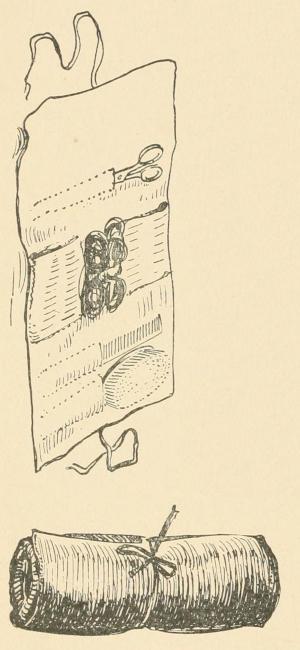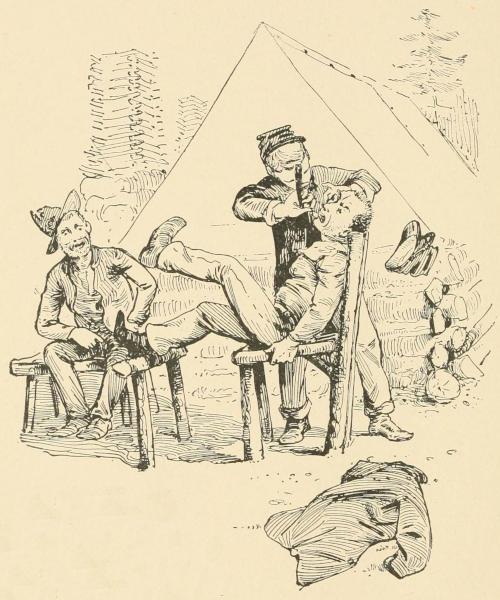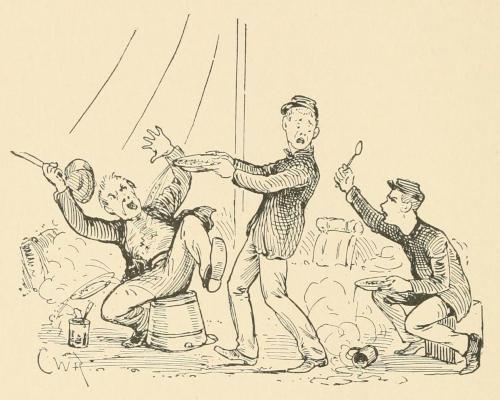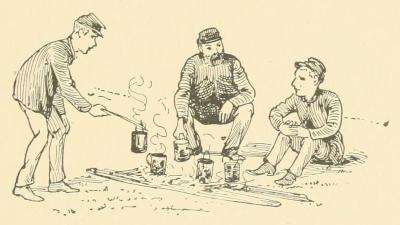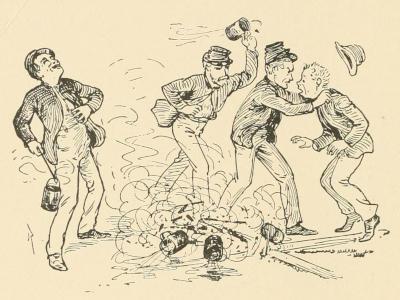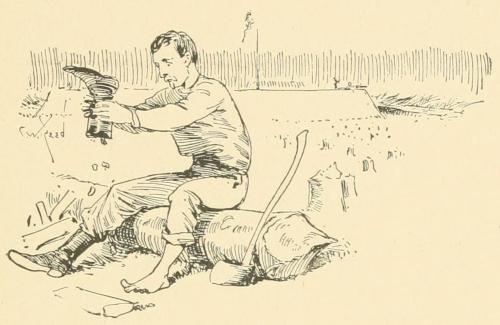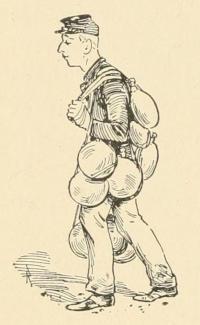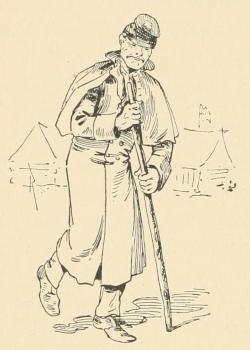RenewableHydrogen Production
IbrahimDincer
OntarioTech.University,Canada
HarisIshaq
OntarioTech.University,Canada
Elsevier
Radarweg29,POBox211,1000AEAmsterdam,Netherlands TheBoulevard,LangfordLane,Kidlington,OxfordOX51GB,UnitedKingdom 50HampshireStreet,5thFloor,Cambridge,MA02139,UnitedStates
Copyright © 2022ElsevierInc.Allrightsreserved.
Nopartofthispublicationmaybereproducedortransmittedinanyformorbyany means,electronicormechanical,includingphotocopying,recording,oranyinformation storageandretrievalsystem,withoutpermissioninwritingfromthepublisher.Detailson howtoseekpermission,furtherinformationaboutthePublisher’spermissionspolicies andourarrangementswithorganizationssuchastheCopyrightClearanceCenterandthe CopyrightLicensingAgency,canbefoundatourwebsite: www.elsevier.com/permissions .
Thisbookandtheindividualcontributionscontainedinitareprotectedundercopyright bythePublisher(otherthanasmaybenotedherein).
Notices
Knowledgeandbestpracticeinthis fieldareconstantlychanging.Asnewresearchand experiencebroadenourunderstanding,changesinresearchmethods,professional practices,ormedicaltreatmentmaybecomenecessary.
Practitionersandresearchersmustalwaysrelyontheirownexperienceandknowledgein evaluatingandusinganyinformation,methods,compounds,orexperimentsdescribed herein.Inusingsuchinformationormethodstheyshouldbemindfuloftheirownsafety andthesafetyofothers,includingpartiesforwhomtheyhaveaprofessionalresponsibility.
Tothefullestextentofthelaw,neitherthePublishernortheauthors,contributors,or editors,assumeanyliabilityforanyinjuryand/ordamagetopersonsorpropertyasa matterofproductsliability,negligenceorotherwise,orfromanyuseoroperationofany methods,products,instructions,orideascontainedinthematerialherein.
LibraryofCongressCataloging-in-PublicationData
AcatalogrecordforthisbookisavailablefromtheLibraryofCongress
BritishLibraryCataloguing-in-PublicationData
AcataloguerecordforthisbookisavailablefromtheBritishLibrary ISBN:978-0-323-85176-3
ForinformationonallElsevierpublicationsvisitourwebsiteat https://www.elsevier.com/books-and-journals
Publisher: CandiceJanco
AcquisitionsEditor: PeterAdamson
EditorialProjectManager: LeticiaMLima
ProductionProjectManager: NiranjanBhaskaran
CoverDesigner: VictoriaPearson
TypesetbyTNQTechnologies
Preface ..................................................................................................xi Nomenclature. ........................................................................................xv
CHAPTER1Introduction ............................................................1
1.1 FuelsUtilization.. ...............................................................7
1.2 HydrogenPropertiesandSustainableDevelopment. ...............12
1.3 HydrogenStorage. ............................................................17
1.4 HydrogenInfrastructure,Transportation,andDistribution.. .....21
1.5 HydrogenFuel-CellApplications ........................................23
1.5.1ProtonExchangeMembraneFuelCells.. ......................27
1.5.2PhosphoricAcidFuelCells... .....................................28
1.5.3SolidOxideFuelCells ..............................................28
1.5.4AlkalineFuelCells ...................................................30
1.5.5AmmoniaFuelCells.. ...............................................31
1.6 ClosingRemarks. .............................................................33
CHAPTER2HydrogenProductionMethods
................................35
2.1 ConventionalHydrogenProductionMethods. ........................41
2.1.1NaturalGasReforming... ..........................................42
2.1.2CoalGasification.. ....................................................45
2.2 RenewableHydrogenProductionMethods... .........................48
2.2.1SolarEnergy.. .........................................................51
2.2.2WindEnergy.. .........................................................52
2.2.3GeothermalEnergy...................................................54
2.2.4HydroEnergy. .........................................................54
2.2.5OceanThermalEnergyConversion.. ...........................57
2.2.6BiomassGasification. ...............................................58
2.3 OtherHydrogenProductionMethods ...................................59
2.3.1NuclearEnergy-BasedHydrogenProduction. ................60
2.3.2Aluminum-BasedHydrogenProduction. ......................62
2.3.3PlasmaReactor-BasedHydrogenProduction. ................63
2.3.4AmmoniaCrackingforHydrogenProduction................65
2.3.5Ultrasonic-BasedHydrogenProduction.. ......................67
2.3.6Chlor-AlkaliElectrochemicalProcess ..........................68
2.3.7BiologicalHydrogenProduction. ................................71
2.4 ThermochemicalCycles. ...................................................73
2.5 Electrolysis... ..................................................................79
2.5.1ProtonExchangeMembraneElectrolyzer .....................79
2.5.2SolidOxideElectrolyzer.. ..........................................83
3.1
3.3.1CaseStudy1
3.3.2CaseStudy2
3.4
3.5
3.9
4.1
4.2
4.2.1Horizontal-AxisWindTurbines
4.4 WindTurbineConfiguration
4.5 WindEnergy-BasedHydrogenProduction.
5.1.1Advantages..
5.1.2Disadvantages
5.2 GeothermalPowerPlants...
5.3 TypesofGeothermalPowerPlants.
5.3.1DrySteamPowerPlants
5.3.2FlashSteamPowerPlants...
5.3.3BinaryCyclePowerPlants..
5.4 GeothermalHeatPumps
5.5 TypesofGeothermalHeatPumps..
5.5.1Closed-LoopSystems..............................................172
5.5.2Open-LoopSystem..
5.5.3HybridSystems......................................................173
5.6 FlashingTypesofGeothermal-AssistedHydrogen ProductionPlantswithReinjection... .................................176
5.6.1Single-FlashGeothermal-AssistedHydrogen ProductionPlant... ..................................................177
5.6.2Double-FlashGeothermal-AssistedHydrogen ProductionPlant... ..................................................178
5.6.3Triple-FlashGeothermal-AssistedHydrogen ProductionPlant... ..................................................179
5.7 CaseStudy5. ................................................................181
5.7.1Description............................................................181
5.7.2Analysis.. .............................................................182
5.7.3ResultsandDiscussion ............................................185
5.8 ClosingRemarks. ...........................................................188
CHAPTER6HydroEnergy-BasedHydrogenProduction.............191
6.1 WorkingPrinciple ..........................................................191
6.2 AdvantagesandDisadvantagesofHydroEnergy .................195
6.2.1AdvantagesofHydroEnergy. ...................................195
6.2.2DisadvantagesofHydropower ..................................197
6.3 ClassificationofHydropowerPlants. .................................202
6.4 HydroelectricTurbineandGenerator .................................204
6.4.1HydroelectricPowerPlantandPumpedStorage. .........206
6.5 TypesofHydropowerTurbines.. .......................................208
6.5.1ImpulseTurbine... ..................................................208
6.5.2ReactionTurbine.. ..................................................209
6.6 Hydropower-BasedHydrogenProduction ...........................210
6.6.1ModelingofSinglePenstock. ...................................214
6.6.2SurgeTankModeling. .............................................215
6.6.3WaveTravelTime ..................................................216
6.6.4HeadLossCoefficient .............................................217
6.7 ClosingRemarks. ...........................................................218
CHAPTER7OceanEnergy-BasedHydrogenProduction ............219
7.1 OceanEnergyProductionsSteps .......................................220
7.2 OceanEnergyConversion ................................................225
7.2.1TypesofOceanThermalEnergyConversionSystems...225
7.2.2WavePowerGeneration.. ........................................226
7.3 OceanEnergyDevicesandDesigns.. .................................230
7.4 TypesofOceanEnergy.. .................................................232
7.4.1OceanThermalEnergy............................................232
7.4.2OsmoticPower..
7.4.3TidesandCurrents.. ...............................................233
7.5 AdvantagesandDisadvantages .........................................235
7.5.1AdvantagesofOceanEnergy... ................................235
7.5.2DisadvantagesofOceanEnergy ................................237
7.6 CaseStudy6 .................................................................239
7.6.1SystemDescription..
7.6.2Analysis. ..............................................................241
7.6.3ResultsandDiscussion..
7.7 ClosingRemarks
CHAPTER8BiomassEnergy-BasedHydrogenProduction
8.1 AdvantagesandDisadvantagesofBiomassEnergy
8.1.1Advantages.. .........................................................250
8.1.2Disadvantages ........................................................253
8.2 BiomassasaRenewableEnergyResource.
8.2.1BiomassFeedstocks. ...............................................256
8.2.2TypesofBiomass-BasedHydrogenProduction Methods. ..............................................................263
8.3 Pyrolysis .......................................................................264
8.3.1TypesofPyrolysisReactions ....................................265
8.3.2Advantages.. .........................................................266
8.3.3ApplicationsofPyrolysis .........................................267
8.4 BiomassGasification.......................................................267
8.4.1BiomassPowertoHydrogen ....................................271
8.5 TypesofGasifiers... ........................................................271
8.5.1CounterCurrentorUpdraughtGasifier..
8.5.2CocurrentorDowndraughtGasifiers ..........................272
8.5.3FluidizedBedGasifier... ..........................................273
8.5.4Cross-DraughtGasifier.. ..........................................273
8.5.5Entrained-FlowGasifier. ..........................................274
8.6 CaseStudy7 .................................................................274
8.6.1SystemDescription..
8.6.2AnalysisandAssessment
8.6.3ResultsandDiscussion..
8.7 ClosingRemarks
9.1 StatusofIntegratedEnergySystems ..................................290
9.1.1IntegratedEnergySystemsforBuildings ....................294
9.1.2IntegratedEnergySystemsforHydrogen.... ................294
9.2 SignificanceofIntegratedEnergySystems... .......................296
9.2.1EfficientEnergyUtilization... ...................................296
9.2.2SustainableEnergySupply.... ...................................297
9.2.3EnergyIndependence. .............................................298
9.2.4GridQuality... .......................................................299
9.2.5GlobalClimateSupport... ........................................299
9.3 CaseStudy8. ................................................................303
9.3.1SystemDescription .................................................303
9.3.2Analysis.. .............................................................306
9.3.3ResultsandDiscussion ............................................310
9.4 CaseStudy9. ................................................................314
9.4.1SystemDescription .................................................314
9.4.2Analysis.. .............................................................317
9.4.3ResultsandDiscussion ............................................320
9.5 CaseStudy10................................................................324
9.5.1SystemDescription .................................................324
9.5.2Analysis.. .............................................................326
9.5.3ResultsandDiscussion ............................................330
9.6 ClosingRemarks. ...........................................................334 CHAPTER10ConclusionsandFutureDirections
FutureDirections..........................................................339
Thispageintentionallyleftblank
Preface
Weareinanerawherethesocietalenergydimensionsarenotsustainableenough becauseofthekeyissues,suchasthatglobalenergydemandhasrisensignificantly withaprimarydependenceonfossilfuelsandthatlocalandglobalenvironmental challengeshavebecomeprominentthroughstratosphericozonedepletion,acid rain,andglobalwarming.Collectiveeffortshavebeenplacedonfossil-fuels-freesolutionstomeettheenergyneedsandprotecttheenvironment.Furthereffortshave,in thisregard,beenexertedoncarbon-freefuelsandenergysolutionsthatprimarily dwellonhydrogenandhydrogenenergy.Hydrogenappearstoeradicatethe describedenergyandenvironment-relatedchallenges.Theusageofhydrogenminimizesenvironmentalpollutionenormouslyandreducesfossilfueldependency. Hydrogenandoxygencanbeemployedinthefuelcellstogenerateelectricity, andheatandwateraretheonlyby-productsundergoingzerogreenhousegases. Hydrogencanbeproducedusingnumerousrenewableenergysourceseithercentrallyandformerlydistributedoronsitewhereitisrequired.Hydrogenisazeroemissionfuelwhenburnedwithoxygen.Hydrogencanbeusedformultiple applicationsnamely,oilrefineries,synthesisofammonia,andsyntheticfuels,as anenergycarrier,asfuel,asenergystoragemedia,andcanalsobeemployedin thefuelcellsforpowergeneration.Thisbookprovidesclean,sustainable,andenvironmentallybenignroutesofrenewableenergy-drivenhydrogenproductionsystems thatareexpectedtomakeaglobaltransitiontoahydrogeneconomypossible.
Thefirstchaptercomprisesadetailedintroductionofglobalenergydemandsand supplies,carbonemissions,andsectoralenergyutilizationandtheirconsequences. Afterprovidingthehistoricalbackgroundofhydrogenwithitsadvantagesanddisadvantages,acomparativeevaluationofhydrogenandotherfuelsispresented. Renewableenergy-basedsustainablehydrogenproductionandstoragemethods alongwithitsinfrastructure,transportation,anddistributionaswellasutilizationaspectsarediscussed.Furthermore,itconcernshydrogenfuelcellapplications,and thedetailedanalysisandmodelingofdifferentfuelcelltypes,protonexchange membranefuelcells,phosphoricacidfuelcells,ammoniafuelcells,solidoxide fuelcells,andalkalinefuelcellsareprovidedanddiscussedindetail.
Chapter2 presentsvarioustypesofhydrogenproductionmethods,including conventional(particularly,naturalgasreformingandcoalgasification)andcleaner methodswithrenewableenergysourcesofsolar,wind,hydro,oceanthermalenergy conversion,tidal,geothermal,andbiomass.Thischapteralsocoversthethermochemicalcycles,chlor-alkalielectrochemicalprocess,andwaterelectrolysisprocess includingprotonexchangemembraneelectrolyzer,solidoxideelectrolyzer,and alkalineelectrolyzer.
Chapter3 concernsthesolarenergy-drivenhydrogenproductionmethods, includingthermochemical,photochemical,photoelectrochemical,andelectrolysis processes.Twocasestudiesarepresentedtoinvestigatesolarenergyusingsolar PVpanels,solarheliostatfield,andsolarconcentratingcollectorsforcleanhydrogen
production,andboththeoreticalandexperimentalresultsareinthisregardpresented anddiscussed.Thedesignedcasestudiesalsoanalyzebothsteady-stateanddynamic (time-dependent)casesasexplainedandinvestigatedtoexploretheintermittentnatureofsolarenergysources.
Chapter4 encompassesthewindenergy-drivenhydrogenproductionmethods. Onshoreandoffshorewindturbinesareexplainedcomprehensively,includingthe horizontal-axisandvertical-axiswindturbines.Eachpartofthewindturbinesystem isexplainedinthewindturbineconfiguration,andacasestudyisdesignedtoinvestigatethesteady-stateanddynamicsituationsofwindhydrogenproductionsystems.
Chapter5 dwellsongeothermalenergy-drivenhydrogenproduction,geothermal reserves/capacities,andgeothermalutilizationalongwiththeadvantagesanddisadvantagesofgeothermalenergy.Theapproachesofgeothermalpowerplantsare considered,includingwithandwithoutreinjectiontechniquesandgeothermal heatpumps.Drysteam,flashsteam,andbinarycyclegeothermalpowerplantsas wellgeothermalheatpumpsincludingclosed-loop(vertical,horizontal,lakeor pond),open-loop,andhybridsystemsarepresentedanddiscussedindetail.The differentflashingtypesofsingle,double,andtriple-stagegeothermal-assisted hydrogenproductionplantsarepresented,andacasestudyisdesignedtoillustrate howageothermalhydrogenproductionsystemisimplemented.
Chapter6 comprehensivelydiscussesthehydroenergy-basedhydrogenproductionsystems,includingtheprosandconsofhydroenergy.Somesignificanttopics, suchastheclassificationofthehydropowerplant,hydroelectricturbineandgenerator,hydroelectricpowerplant,andpumpedstoragearediscussedindetail.This chapteralsocoversthetypesofhydropowerturbinesalongwiththemodelingof thesinglepenstock,surgetank,andwavetraveltime.
Chapter7 isaimedtopresentsomemethodsthatareapplicabletotheoceanthermalenergyconversion(OTEC)-assistedhydrogenproductionsystemandalsodiscussesdifferenttypesofOTECsystemssuchasclosed-cycle,open-cycle,and hybrid.Itfurtherincludestheoceanenergydevicesanddesignsconsideringthe prosandconsofdifferenttypesofoceanenergysuchasoceanthermalenergy,osmoticpower,andtidesandcurrents.AcasestudyisdesignedtoexploretheOTECbasedhydrogenproductionapplication.
Chapter8 dealswiththebiomass-basedhydrogenproductionmethodsanddiscussestheadvantagesanddisadvantagesofbiomassasarenewableenergyresource. Italsodiscussesthedifferenttypesofbiologicalmethodsincludingdarkfermentation,photofermentation,microbialelectro-hydro-genesiscell,direct/indirectbiophotolysis,andthermochemicalmethodsincludinggasification,high-pressure aqueous,andpyrolysis.Varioustypesofpyrolysisreactionsandgasifiertypes includingupdraft,downdraft,fluidizedbed,andcross-draughtgasifierarediscussed indetail.Acasestudyispresentedtoillustrateabiomassgasification-based hydrogenproductionapplication.
Chapter9 isabouttheintegratedsystemsforhydrogenproductionforbuildings, hydrogen,andcombinedheatingandpowertoelaboratethesignificanceofintegratedenergysystems.Thischapteralsocoversthesustainableenergysupply
Preface xiii
aspectsincludingpower-to-gas,power-to-heat,andbatterystorage.Threecase studiesareaccommodatedtoinvestigatethedifferentintegratedconfigurationsof solarPV,solarheliostatfield,solarconcentratingcollector,wind,hydro,geothermal, OTEC,andbiomassforcleanandsustainablehydrogenproduction.
Chapter10 statessomekeyclosingremarksandfuturedirectionsforthepotentialdevelopmentanddeploymentofrenewablehydrogenproductiontechnologies andhighlightstheadvancementsinhydrogen-basedenergytechnologiesforglobal transition.
IbrahimDincer HarisIshaq
Thispageintentionallyleftblank
Another random document with no related content on Scribd:
ARMY CANDLESTICKS.
As to candlesticks, the government provided the troops with these by the thousands. They were of steel, and very durable, but were supplied only to the infantry, who had simply to unfix bayonets, stick the points of the same in the ground, and their candlesticks were ready for service. As a fact, the bayonet shank was thecandlestick of the rank and file who used that implement. It was always available, and just “filled the bill” in other respects. Potatoes were too valuable to come into very general use for this purpose. Quite often the candle was set up on a box in its own drippings.
Whenever candles failed, slush lamps were brought into use. These I have seen made by filling a sardine box with cook-house grease, and inserting a piece of rag in one corner for a wick. The whole was then suspended from the ridge-pole of the hut by a wire. This wire came to camp around bales of bay brought to the horses and mules.
The bunks were the most popular institutions in the huts. Soldiering is at times a lazy life, and bunks were then liberally patronized; for, as is well known, ottomans, lounges, and easy-chairs
are not a part of a soldier’s outfit. For that reason the bunks served as a substitute for all these luxuries in the line of furniture.
I will describe in greater detail how they were used. All soldiers were provided with a woollen and a rubber blanket. When they retired, after tattoo roll-call, they did not strip to the skin and put on night-dresses as they would at home. They were satisfied, ordinarily, with taking off coat and boots, and perhaps the vest. Some, however, stripped to their flannels, and, donning a smoking-cap, would turn in, and pass a very comfortable night. There were a few in each regiment who never took off anything, night or day, unless compelled to; and these turned in at night in full uniform, with all the covering they could muster. I shall speak of this class in another connection.
There was a special advantage in two men bunking together in winter-quarters, for then each got the benefit of the other’s blankets —no mean advantage, either, in much of the weather. It was a common plan with the soldiers to make an under-sheet of the rubber blanket, the lining side up, just as when they camped out on the ground, for it excluded the cold air from below in the one case as it kept out dampness in the other. Moreover, it prevented the escape of animal heat.
I think I have said that the half-shelters were not impervious to a hard rain. But I was about to say that whenever such a storm came on it was often necessary for the occupants of the upper bunk to cover that part of the tent above them with their rubber blankets or ponchos; or, if they did not wish to venture out to adjust such a protection, they would pitch them on the inside. When they did not care to bestir themselves enough to do either, they would compromise by spreading a rubber blanket over themselves, and let the water run off on to the tent floor.
At intervals, whose length was governed somewhat by the movements of the army, an inspector of government property put in an appearance to examine into the condition of the belongings of the government in the possession of an organization, and when in
his opinion any property was unfit for further service it was declared condemned, and marked with his official brand, I C, meaning, InspectedCondemned. This I C became a byword among the men, who made an amusing application of it on many occasions.
In the daytime the men lay in their bunks and slept, or read a great deal, or sat on them and wrote their letters. Unless otherwise forbidden, callers felt at liberty to perch on them; but there was such a wide difference in the habits of cleanliness of the soldiers that some proprietors of huts had, as they thought, sufficient reasons why no one else should occupy their berths but themselves, and so, if the three-legged stools or boxes did not furnish seating capacity enough for company, and the regular boarders, too, the r. b. would take to the bunks with a dispatch which betokened a deeper interest than that required of simple etiquette. This remark naturally leads me to say something of the insect life which seemed to have enlisted with the soldiers for “three years or during the war,” and which required and received a large share of attention in quarters, much more, in fact, than during active campaigning. I refer now, especially, to the PediculusVestimenti, as the scientific men call him, but whose picture when it is well taken, and somewhat magnified, bears this familiar outline. Old soldiers will recognize the picture if the name is an odd one to them. This was the historic “grayback” which went in and out before Union and Confederate soldiers without ceasing. Like death, it was no respecter of persons. It preyed alike on the just and the unjust. It inserted its bill as confidingly into the body of the major-general as of the lowest private. I once heard the orderly of a company officer relate that he had picked fifty-two graybacks from the shirt of his chief at one sitting. Aristocrat or plebeian it mattered not. Every soldier seemed foreordained to encounter this pest at close quarters. Eternal vigilance was not the price of liberty. That failed the most scrupulously careful veteran in active campaigning. True, the neatest escaped the longest, but sooner or later the time came when it was simply impossible for even them nottoletthelefthandknowwhat therighthandwasdoing.

PEDICULUS VESTIMENTI.
The secretiveness which a man suddenly developed when he found himself inhabited for the first time was very entertaining. He would cuddle all knowledge of it as closely as the old Forty-Niners did the hiding-place of their bag of gold-dust. Perhaps he would find only one of the vermin. This he would secretly murder, keeping all knowledge of it from his tent-mates, while he nourished the hope that it was the Robinson Crusoe of its race cast away on a strange shore with none of its kind at hand to cheer its loneliness. Alas, vain delusion! In ninety-nine cases out of a hundred this solitary pediculus would prove to be the advance guard of generations yet to come, which, ere its capture, had been stealthily engaged in sowing its seed; and in a space of time all too brief, after the first discovery the same soldier would appoint himself an investigating committee of one to sit with closed doors, and hie away to the desired seclusion. There he would seat himself taking his garments across his knees in turn, conscientiously doing his (k)nitting work, inspecting every fibre with the scrutiny of a dealer in broadcloths.
The feeling of intense disgust aroused by the first contact with these creepers soon gave way to hardened indifference, as a soldier realized the utter impossibility of keeping free from them, and the privacy with which he carried on his first “skirmishing,” as this “search for happiness” came to be called, was soon abandoned, and the warfare carried on more openly. In fact, it was the mark of a cleanly soldier to be seen engaged at it, for there was no disguising the fact that everybody needed to do it.
In cool weather “skirmishing” was carried on in quarters, but in warmer weather the men preferred to go outside of camp for this purpose; and the woods usually found near camps were full of them sprinkled about singly or in social parties of two or three slaying
(K)NITTING WORK. their victims by the thousands . Now and then a man could be seen just from the quarterm aster with an entire new suit on his arm, bent on starting afresh. He would hang the suit on a bush, strip off every piece of the old, and set fire to the same, and then don the new suit of blue. So far well; but he was a lucky man if he did not share his new clothes with other hungry pediculiinside of a week.
“Skirmishing,” however, furnished only slight relief from the oppressive attentions of the grayback, and furthermore took much time. Hot water was the sovereign remedy, for it penetrated every mesh and seam, and cooked the millions yet unborn, which Job himself could not have exterminated by the thumbnail process unaided. So tenacious of life were these creatures that some veterans affirm they have seen them still creeping on garments
taken out of boiling water, and that only by putting salt in the water were they sure of accomplishing their destruction.
I think there was but one opinion among the soldiers in regard to the graybacks; viz., that the country was being ruined by over-production. What the Colorado beetle is to the potato crop they were to the soldiers of both armies, and that man has fame and fortune in his hand who, before the next great war in any country, shall have invented an extirpator which shall do for the pediculus what paris-green does for the potato-bug. From all this it can readily be seen why no good soldier wanted his bunk to be regarded as common property.
“TURNING HIM OVER.”
I may add in passing that no other variety of insect life caused any material annoyance to the soldier. Now and then a wood-tick would insert his head, on the sly, into some part of the human integument; but these were not common or unclean.
I have already related much that the soldier did to pass away time. I will add to that which I have already given two branches of domestic industry that occupied a considerable time in log huts with a few, and less—very much less indeed—with others. I refer to washing and mending. Some of the men were just as particular about changing their under-clothing at least once a week as they would be at home; while others would do so only under the severest pressure. It is disgusting to remember, even at this late day, how little care hundreds of the men bestowed on bodily cleanliness. The story, quite familiar to old soldiers, about the man who was so
BOILING THEM.
negligent in this respect that when he finally took a bath he found a number of shirts and socks which he supposed he had lost, arose from the fact of there being a few men in every organization who were most unaccountably regardless of all rules of health, and of whom such a statement would seem, to those that knew the parties, only slightly exaggerated.
A WOOD-TICK.
How was this washing done? Well, if the troops were camping near a brook, that simplified the matter somewhat; but even then the clothes must be boiled, and for this purpose there was but one resource—themess kettles. There is a familiar anecdote related of Daniel Webster: that while he was Secretary of State, the French Minister at Washington asked him whether the United States would recognize the new government of France—I think Louis Napoleon’s. Assuming a very solemn tone and posture, Webster replied: “Why not? The United States has recognized the Bourbons, the French Republic, the Directory, the Council of Five Hundred, the First Consul, the Emperor, Louis XVIII., Charles X., Louis Philippe, the”—“Enough! enough!” cried the minister, fully satisfied with the extended array of precedents cited.
So, in regard to using our mess kettles to boil clothes in, it might be asked “Why not?” Were they not used to boil our meat and potatoes in, to make our bean, pea, and meat soups in, to boil our
CLEANING UP. tea and coffee in, to make our apple and peach sauce in? Why not use them as washboilers?
Well, “gentle reader,” while it might at first interfere somewhat with your appetite to have your food cooked in the washboiler, you would soon get used to it; and so this complex use of the mess kettles soon ceased to affect the appetite, or to shock the sense of propriety of the average soldier as to the eternal fitness of things, for he was often compelled by circumstances to endure much greater improprieties. It would indeed have been a most admirable arrangement in many respects could each man have been provided with an excellent Magee Range with copper-boiler annex, and set tubs near by; but the line had to be drawn somewhere, and so everything in the line of impedimentawas done away with, unless it was absolutely essential to the service. For this reason we could not
take along a well equipped laundry, but must make some articles do double or triple service.
It may be asked what kind of a figure the men cut as washerwomen. Well, some of them were awkward and imperfect enough at it; but necessity is a capital teacher, and, in this as in many other directions, men did perforce what they would not have attempted at home. It was not necessary, however, for every man to do his own washing, for in most companies there was at least one man who, for a reasonable recompense, was ready to do such work, and he usually found all he could attend to in the time he had off duty. There was no ironing to be done, for “boiled shirts,” as whitebosomed shirts were called, were almost an unknown garment in the army except in hospitals. Flannels were the order of the day. If a man had the courage to face the ridicule of his comrades by wearing a white collar, it was of the paper variety, and white cuffs were unknown in camp.
In the department of mending garments each man did his own work, or left it undone, just as he thought best; but no one hired it done. Every man had a “housewife” or its equivalent, containing the necessary needles, yarn, thimble, etc., furnished him by some mother, sister, sweetheart, or Soldier’s Aid Society, and from this came his materials to mend or darn with.
Now, the average soldier was not so susceptible to the charms and allurements of sock-darning as he should have been; for this reason he always put off the direful day until both heels looked boldly and with hardened visage out the back-door, while his ten toes ranged themselves en échelon in front of their quarters. By such delay or neglect good ventilation and the opportunity of drawing on the socks from either end were secured. The task of once more restricting the toes to quarters was not an easy one, and the processes of arriving at this end were not many in number. Perhaps the speediest and most unique, if not the most artistic, was that of tying a string around the hole. This was a scheme for cutting the Gordian knot of darning, which a few modern Alexanders put
into execution. But I never heard any of them commend its comforts after the job was done.
Then, there were other men who, having arranged a checkerboard of stitches over the holes, as they had seen their mothers do, had not the time or patience to fill in the squares, and the inevitable consequence was that both heels and toes would look through the bars only a few hours before breaking jail again. But there were a few of the boys who were kept furnished with homemade socks, knit, perhaps, by their good old grandmas, who seemed to inherit the patience of the grandams themselves; for, whenever there was mending or darning to be done, they would sit by the hour, and do the work as neatly and conscientiously as any one could desire. I am not wide of the facts when I say that the heels of the socks darned
A HOUSEWIFE.
by these men remained firm when the rest of the fabric was well spent.
There was little attempt made to repair the socks drawn from the government supplies, for they were generally of the shoddiest description, and not worth it. In symmetry, they were like an elbow of stove-pipe; nor did the likeness end here, for, while the stove-pipe is open at both ends, so were the socks within forty-eight hours after putting them on.
Cooking was also an industry which occupied more or less of the time of individuals; but when the army was in settled camp company cooks usually took charge of the rations. Sometimes, where companies preferred it, the rations were served out to them in the raw state; but there was no invariable rule in this matter. I think the soldiers, as a whole, preferred to receive their coffee and sugar raw, for rough experience in campaigning soon made each man an expert in the preparation of this beverage. Moreover, he could make a more palatable cup for himself than the cooks made for him; for too often their handiwork betrayed some of the other uses of the mess kettles to which I have made reference. Then, again, some men liked their coffee strong, others weak; some liked it sweet, others wished little or no sweetening; and this latter class could and did save their sugar for other purposes. I shall give other particulars about this when I take up the subject of Army Rations.
It occurs to me to mention in this connection a circumstance which may seem somewhat strange to many, and that is that some parts of the army burned hundreds of cords of green pine-wood while lying in winter-quarters. It was very often their only resource for heat and warmth. People at the North would as soon think of attempting to burn water as green pine. But the explanation of the paradox is this—the pine of southern latitudes has more pitch in it than that of northern latitudes. Then, the heart-wood of all pines is comparatively dry. It seemed especially so South. The heart-wood was used to kindle with, and the pitchy sap-wood placed on top, and by the time the heart-wood had burned the sappy portion had also
seasoned enough to blaze and make a good fire. These pines had the advantage over the hard woods of being more easily worked up —an advantage which the average soldier appreciated.
Nearly every organization had its barber in established camp. True, many men never used the razor in the service, but allowed a shrubby, straggling growth of hair and beard to grow, as if to conceal them from the enemy in time of battle. Many more carried their own kit of tools and shaved themselves, frequently shedding
THE CAMP BARBER.
innocent blood in the service of their country while undergoing the operation. But there was yet a large number left who, whether from lack of skill in the use or care of the razor, or from want of inclination, preferred to patronize the camp barber. This personage plied his vocation inside the tent in cold or stormy weather, but at other times took his post in rear of the tent, where he had improvised a chair for the comfort (?) of his victims. This chair was a product of home manufacture. Its framework was four stakes driven into the ground, two long ones for the back legs, and two shorter ones for the front. On this foundation a super-structure was raised which made a passable barber’s chair. But not all the professors who presided at these chairs were finished tonsors, and the back of a soldier’s head whose hair had been “shingled” by one of them was likely to show each course of the shingles with painful distinctness. The razors, too, were of the most barbarous sort, like the “trust razor” of the old song with which the Irishman got his “Love o’ God Shave.”
One other occupation of a few men in every camp, which I must not overlook, was that of studying the tactics. Some were doing it, perhaps, under the instructions of superior officers; some because of an ambition to deserve promotion. Some were looking to passing a competitive examination with a view of obtaining a furlough; and so these men, from various motives, were “booking” themselves. But the great mass of the rank and file had too much to do with the practice of war to take much interest in working out its theory, and freely gave themselves up, when off duty, to every available variety of physical or mental recreation, doing their uttermost to pass away the time rapidly; and even those troops having nearly threeyearsto serve would exclaim, with a cheerfulness more feigned than real, as each day dragged to its close, “It’sonlytwoyearsandabut.”
CHAPTER VI.
JONAHS AND BEATS.
“Good people, I’ll sing you a ditty, So bear with me all ye who can; I make an appeal to your pity, For I’m a most unlucky man. ’Twas under an unlucky planet That I a poor mortal was born; My existence since first I began it Has been very sad and forlorn. Then do not make sport of my troubles, But pity me all ye who can,
For I’m an uncomfortable, horrible, terrible, inconsolable, unlucky man.”

In a former chapter I made the statement that Sibley tents furnished quarters capacious enough for twelve men. That statement is to be taken with some qualifications. If those men were all lying down asleep, there did not seem much of a crowd. But if one man of the twelve happened to be on guard at night, and, furthermore, was on what we used to know as the Third Relief guard, which in my company was posted at 12, midnight, and came off post at 2 A.M., when all were soundly sleeping, and, moreover, if this man chanced to quarter in that part of the tent opposite the entrance, and if, in seeking his blanket and board in the darkness, it was his luck to step on the stockinged foot of a recumbent form having a large voice, a large temper, but a small though forcible selection of English defiled, straightway that selection was hurled at the head of the offending even though well-meaning guard. And if, under the excitement of his mishap, the luckless guard makes a spring thinking to clear all other intervening slumberers and score a home run, but alights instead amidships of the comrade who sleeps next him, expelling from him a groan that by all known comparisons
should have been his last, the poor guard has only involved himself the more inextricably in trouble; for as soon as his latest victim recovers consciousness sufficiently to know that it was nota twelvepound cannon ball that has doubled him up, and that stretcher bearers are notneeded to take him to the rear, he strikes up in the same strain and pitch and force as that of the first victim, and together they make the midnight air vocal with choice invective against their representative of the Third Relief. By this time the rest of the tent’s crew have been waked up, cross enough, too, at being thus rudely disturbed, and they all come in heavily on the chorus. As the wordy assault continues the inmates of adjoining tents who have also been aroused take a hand in it, and “Shut up!”—“Sergeant of the Guard!”—“Go lie down!”—“Shoot him on the spot!”—“Put him in the guard-house!” are a few of the many impromptu orders issued within and without the tent in question.
At last the tempest in a teapot expends itself and by the time that the sergeant of the guard has arrived to seek out the cause of the tumult and enforce the instructions of the officer of the day by putting the offenders against the rules and discipline of camp under arrest, for talking and disturbance after Taps, all are quiet, for no one would make a complaint against the culprits. Their temporary excitement has cooled, and the discreet sergeant is even in doubt as to which tent contains the offenders.
THE JONAH SPILLING PEA-SOUP.
Now, accidents will happen to the most careful and the best of men, but the soldier whom I have been describing could be found in every squad in camp—that is, a man of his kind. Such men were called “Jonahs” on account of their ill luck. Perhaps this particular Jonah after getting his tin plate level full of hot pea-soup was sure, on entering the tent, to spill a part of it down somebody’s back. The higher he could hold it the better it seemed to please him as he made his way to his accustomed place in the tent, and in bringing it down into a latitude where he proposed to eat it he usually managed to dispose of much of the remainder, either on his own or somebody else’s blankets. When pea-soup failed him for a diversion, he was a dead shot on kicking over his neighbor’s pot of coffee, which the owner had put down for a moment while he adjusted his lap-table to receive his supper. The profuseness of the Jonah’s apologies—and they always were profuse, and undoubtedly sincere—was utterly inadequate as a balm for the wounds he made. Anybody else in the tent might have kicked the coffee to the remotest bounds of camp
with malice aforethought, and it would not have produced a tithe of the aggravation which it did to have this constitutional blunderer do it by accident. It may be that he wished to borrow your ink. Of course you could not refuse him. It may have been made by you with some ink powders sent from home—perhaps the last you had and which you should want yourself that very day. It mattered not. He took it with complacency and fair promises, put it on a box by his side and tipped the box over five minutes afterward by the watch.
THE CAMP-FIRE BEFORE THE JONAH APPEARS.
THE CAMP-FIRE AFTER THE JONAH APPEARS.
Cooking was the forte of this Jonah. He could be found most any time of day—or night, if he was a guardsman—around the camp-fire with his little mess of something in his tomato can or tin dipper, which he would throw an air of mystery around every now and then by drawing a small package from the depths of his pocket or haversack and scattering some of its contents into the brew. But there was a time in the history of his culinary pursuits when he rose to a supreme height as a blunderer. It was when he appeared at the camp-fire which, by the way, he never kindled himself, ready to occupy the choice places with his dishes; and after the two rails, between which fires were usually built, had been well burdened by the coffee-pots of his comrades it presented an opportunity which his evil genius was likely to take advantage of; for then he was suddenly seized with a thought of something else that he had forgotten to borrow. Turning in his haste to go to the tent for this purpose he was sure to stumble over the end of one or both of the rails, when the downfall of the coffee-pots and the quenching of the fire followed as a matter of course. At just this point in his career it would be to the credit of his associates to drop the curtain on the picture; but the sequel must be told. The average soldier was not an especially devout man, and while in times of imminent danger he had serious thoughts, yet at other times his many trials, his privations, and the rigors of a necessary discipline all conduced to make him a highly explosive creature on demand. Moreover, coffee and sugar were staple articles with the soldier, and the least waste of them was not to be tolerated under ordinary circumstances; but to have a whole line of coffee-pots with their precious contents upset by the Jonah of the tent in his recklessness was the last ounce of pressure removed from the safety valve of his tent-mates’ wrath; and such a discharge of hard names and oaths, “long, loud, and deep,” as many of these sufferers would deliver themselves of, if it could have been utilized against the enemy, might have demolished a regiment. And the others who did not give vent to their passions by blows or the use of strong language seemed to sympathize very keenly with those who did. Two chaplains apiece to some of the men would have been none too many to hold them in check.
I remember one man who seemed always to have hard luck in spite of himself. He was a good soldier and meant well, but would blunder badly now and then. His last act in the service was to plunge an axe through his boot while he was cutting wood. Unfortunately for him as it happened his foot was in it at the time. On pulling it out of the boot and looking it over he found that several of his toes had “got left”; so he took up his boot, turned it upside down, and shook out a shower of toes as complacently as if that was what he enlisted for. This casualty closed his career in active service.
THE UNLUCKY MAN.
There were divers other directions in which the Jonah distinguished himself; but I must leave him for the present to direct attention to the other class of men of whom I wish to say something. These were the beatsof the service—a name given them by their comrades-in-arms. There were all grades of beats. The original idea of beat was that of a lazy man or a shirk, who would by hook or by crook get rid of all military or fatigue duty that he could; but the term grew to have a broader significance.
One of the milder forms of beat was the man who sat over the fire in the tent piling on wood all the time, and roasting out the rest of
the tent’s crew, who seemed to have no rights that this fireman felt bound to respect. He was always cold. He wore overcoat, dress-coat, blouse, and flannels the full government allowance all at once, but never complained of being too warm. He never took off any of these garments night or day unless compelled to on inspection. He was most at home on fatigue duty, for he seemed fatigued from the start and moved like real estate. A sprinkling of this class seemed necessary to the success of the Union arms, for they were certainly to be found in every organization.
Another and more positive type of beat were the men who never had any water in their canteens. Even when the army was in settled camp, water was not always to be had without going some distance for it; but these men were never known to go after any. They always managed to hang their canteen on some one else who was bound for the spring. If, when the army was on the move, a rush was made during a temporary halt, for a spring or stream some distance away, these men never rushed. They were satisfied to lie down and drink a supply which they took their chances of begging, from some recruit, perhaps, who did not know their propensities. If it happened to any man to be so straitened in his cooking operations as to be under the necessity of borrowing from one of these, he was sure of being called upon to requite the favor fully as many times as his temper would endure it.
GOING AFTER WATER.
Then, as to rations, their hardtack never held out, and they were ever on the alert to borrow. It mattered not how great the scarcity, real or anticipated, they could not provide for a contingency, and their neighbors in the same squad were mean and avaricious—so the
beats said—if they would not give of their husbanded resources to these profligate, improvident comrades. But this class did not stop at borrowing hardtack. They were not all of them particular, and when hardtack could not be spared they would get along with coffee or sugar or salt pork; or, if they could borrow a dollar, “just for a day or two,” they would then repay it surely, because several letters from their friends at home, each one containing money, were already overdue. People in civil life think they know all about the imperfections of the United States postal service, and tell of their letters and papers lost, miscarried, or in some way delayed, with much pedantry; but they have yet to learn the A B C of its imperfections, and no one that I know of is so competent to teach them as certain of the Union soldiers. I could have produced men in 1862-5, yes—I can now—who lost more letters in one year, three out of every four of which contained considerable sums of money, than any postmaster-general yet appointed is willing to admit have been lost since the establishment of a mail service. This, remember, the loss of one man; and when it is multiplied by the number of men just like him that were to be found, not in one army alone but in all the armies of the Union, a special reason is obvious why the government should be liberal in its dealings with the old soldier.
In this connection I am reminded of another interesting feature of army experience, which is of some historical value. It was this: whenever the troops were paid off a very large majority of them wished to send the most of their pay home to their families or their friends for safe keeping. Of course there was some risk attending the sending of it in the mails. To obviate this risk an “allotment” plan was adopted by means of which when the troops were visited by the paymaster, on signing a roll prepared for that purpose, so much of their pay as they wished was allotted or assigned by the soldiers to whomsoever they designated at the North. To illustrate: John Smith had four months’ pay due him at the rate of $13 a month. He decided to allot $10 per month of this to his wife at Plymouth, Mass.; so the paymaster pays him $12, and the remaining $40 is
paid to his wife by check in Plymouth, without any further action on the part of John.
This plan was a great convenience to both the soldiers and their families. In this division of his income the calculation of the soldier was to save out enough for himself to pay all incidental expenses of camp life, such as washing, tobacco, newspapers, pies and biscuits, bought of “Aunty,” and cheese and cakes of the sutler. But in spite of his nice calculations the rule was that the larger part of the money allotted home was returned, by request of the sender, in small amounts of a dollar or the fraction of a dollar. I have previously stated that at that time silver had gone out of use, it being only to be had by paying the premium on it, just as on gold, and so to take its place the government issued what was generally known as scrip, being paper currency of the denominations of fifty, twenty-five, ten, five, and, later, fifteen and three-cent pieces, some of which are still in circulation. They were a great convenience to the soldiers and their friends. But to resume:
If the statements made by these beats as to the amount of money they had sent for and were expecting were to be believed they must not only have sent for their full allotment, but have drawn liberally on their home credit or the charity of their friends besides. In truth, however, the genuine beat never intended to return borrowed money. It is currently believed by outsiders that the soldiers who stood shoulder to shoulder battling for the Union, sharing the same exposures, the same shelter, the same mess would ever afterwards be likely to stand steadfastly by one another. The organization of the Grand Army of the Republic seems to strengthen such an opinion, yet human nature remains pretty much the same in all situations. If a man was a shirk or a thief or a beat or a coward or a worthless scoundrel generally in the army, it was because he had been educated to it before he enlisted. The leopard cannot change his spots nor the Ethiopian his skin. It will therefore create no great surprise when I remark that a large amount of money borrowed by one soldier of another has never been repaid; and such is the lack of honesty and manliness on the part of these men that they can meet
the old comrades of whom in those trying war days they borrowed one, two, five, or ten dollars, and in some cases more, without so much as a blush or betraying in any manner the slightest recognition of their long standing obligation. Some are so worthless and brazenfaced even as to ask the same victims for more at this late day.
One favorite dodge of the beat was to have the corporal arouse him twice or three times before he would finally get out of his bunk; and then he would prepare to go out at a snail’s pace. Once on his beat, his next dodge was to manœuvre so as to have the corporal of his relief do the most of his duty for him; for hardly would he have been posted before the corporal must be summoned, the beat having been seized with a desire to go to the company sink. That is good for half an hour out of the corporal at least. At last the dodger reappears moving at a slow pace, and wearing the appearance of a man suffering for his discharge from service. He retails his woes to the corporal, as he resumes his equipments, in a most doleful strain. But the corporal is in no mood to listen after his long wait, and hastily directs his steps towards the guard-tent.
He is not allowed to remain there long, however, ere a summons reaches him from the same post, to which he responds with excusable ill-humor and mutterings at the duplicity of the guardsman in question. This time the patient has happened to think of some medicine at his tent which will be of benefit to him. Of course the corporal is anxious enough to have him healed, and so he again assumes the duties of the post for the shirk, who does not reappear until his last hour of duty is well on its second quarter, feigning in excuse that he could not find his own panacea and so was obliged to go elsewhere. Thus in one way and another, by using the kind offices of his messmates together with those of the corporal, he would manage to get out of at least two-thirds of his guard duty.
After the battle of Fredericksburg a soldier belonging to a gallant regiment in Burnside’s corps, whose courage had evidently been put to a sore test in the above engagement, resorted to the rheumatic dodge to secure his discharge. He responded daily to sick call,
THE RHEUMATIC DODGER.
pitifully warped out of shape, was prescribed for, but all to no avail. One leg was drawn up so that, apparently, he could not use it, and groans indicative of excruciating agony escaped him at studied intervals and on suitable occasions. So his case went on for six weeks, till at last the surgeon recommended his discharge. It was approved at regimental, brigade, and division headquarters, and had reached corps headquarters when the corps was ordered to Kentucky. At Covington the party having the supposed invalid in charge gained access in some manner to a barrel of whiskey. Not being a temperance man, the dodger was thrown off his guard by this spiritual bonanza, and, taking his turn at the straw, for which entry had been made into the barrel, he was soon as sprightly on both legs as ever. In this condition his colonel found him. Of course his discharge was recalled from corps headquarters, and the way of this transgressor was made hard for months afterwards.
There was another field in which the beat played an interesting part. I use playedwith a double significance, for he never workedif he could avoid it. It was when a detail of men was made to do some line of fatigueduty, by which is meant all the labors of the service distinct from strict military duty, such as the “policing” or clearing up of camp, procuring wood and water for the company, digging and fitting up of sinks (the water-closets of the army), and, in addition to these duties, in cavalry and artillery, procuring grain and forage for the horses. It was a sad fate to befall a good duty soldier to get on
to a detail to procure wood where every second or third man was a shirk or beat; for while they must needs bear the appearance of doing something, they were really in the way of those who could work and were willing to. Many of these shirkers would waste a great deal of time and breath maligning the government or their officers for requiring them to do such work, indignantly declaring that “they enlisted to fight and not to chop wood or dig sinks.” But it was noticeable that when the fight came on, if any of these heroes got into it, they then appeared just as willing to bind themselves by contract to cut all the wood in Virginia, if they could only be let go just that once. These were the men who were “invincible in peace and invisible in war,” as the late Senator Hill, of Georgia, once said. I may add here that, coming as the soldiers did from all avocations and stations in life, these details for fatigue often brought together men few of whom had any practical knowledge of the work in hand; so that aside from the shirks, who couldwork but wouldnot, there were others who wouldbut couldnot, at least intelligently. Still, the army was a great educator in many ways to men who cared to learn, and some of the most ignorant became by force of circumstances quite expert, in time, in channels hitherto untraversed by them.

WATER FOR THE COOK-HOUSE.
But there was one detail upon which our shirks, beats, and men unskilled in manual labor, such as the handling of the spade and pickaxe, appeared in all the glory of their artful dodging and ignorance. If a man did not take hold of the work lively, whether because he preferred to shirk it or because he did not understand it, the worse for him. The detail in question was one made to administer the last rites to a batch of deceased horses. It happened to the artillery and cavalry to lose a large number of these animals in winter, which, owing to the freezing of the ground, could not be buried until the disappearance of the frost in spring; but by that time, through the action of rain and sun and the frequent depredations of dogs, buzzards, and crows, the remains were not always in the most inviting condition for the administrations of the sexton. Then, again, during the summer season, when the army made a halt for rest and recruiting, another sacrifice of glandersinfected and generally used-up horses was made to the god of war. But as they were not always promptly committed to mother earth, either from a desire to show a decent respect for the memory of the
deceased or for some other reason best known to the red-tape of military rule, the odors that were wafted from them on the breezes were wont to become far more “spicy” than agreeable, so that a speedy interment was generally ordered by the military Board of Health.
As soon as the nature of the business for which such a detail was ordered became generally known, the fun began, for a lively protest was wont to go up from the men against being selected to participate in the impending equine obsequies. Perhaps the first objection heard from a victim who has drawn a prize in the business is that “he was on guard the day before, and is not yet physically competent for such a detail.” The sergeant is charged with unfairness, and with having pets that he gives all the “soft jobs” to, etc. But the warrior of the triple chevron is inexorable, and his muttering, much injured subordinate finally reports to the corporal in charge of the detail in front of the camp, betraying in his every word and movement a heart-felt desire for his term of service or this cruel war to be over.
Another one whom his sergeant has booked for the enterprise has got wind of what is to be done, so that when found he is tucked up in his bunk. He stoutly insists that he is an invalid, and is only waiting for the next sounding of “Sick call” to respond to it. But his attack is so sudden, and his language and lungs so strong for a sick man, that he finds it difficult to establish his claim. He calls on his tent-mates to swear that he is telling the truth, but finds them strangely devout and totally ignorant of his ailments, for they are chuckling internally at their own good fortune in not being selected, which, if he proves his case, one of them maybe; so, unless his plea is a pitiful and deserving one, they keep mum.
A third victim does not claim to have been selected out of turn, but nevertheless alleges that “the deal is unfair, because he was on the last detail but one made for this horse-burying business, and he does not think that he ought to be the chief mourner for his detachment, for a paltry thirteen dollars a month. Besides, there
may be others who would like to go on this detail.” But as he is unable to name or find the man or men having this highly refined ambition he finally goes off grumbling and joins the squad.
A fourth victim is the constitutionally hightempered and profane man. He finds no fault with the justice of the sergeant in assigning to him a participation in the ceremonies of the hour; but he had got comfortably seated to write a letter when the summons came, and, pausing only long enough to inquire the nature of the detail, he pitches his half-written letter and materials in one direction, his lapboard in another, gets up, kicks over the box or stool on which he was sitting, pulls on his cap with a vehement jerk, and then opens his battery. He directs none of his unmilitary English at the sergeant—that would hardly do; but he lays his furious lash upon the poor innocent back of the government, though just what branchof it is responsible he does not pause between his oaths long enough to state. He pursues it with the most terrible of curses uphill, and then with like violent language follows it down. He blank blanks the whole blank blank war, and hopes that the South may win. He wishes that all the blank horses were in blank, and adds by way of self-reproach that it serves any one, who is such a blank blank fool as to enlist, right to have this blank, filthy, disgusting work to do. And he leaves the stockade shutting the door

THE HIGH-TEMPERED MAN.
behind him “with a wooden damn,” as Holmes says, and goes off to report, making the air blue with his cursing. Let me say for this man, before leaving him, that he is not so hardened and bad at heart as he makes himself appear; and in the shock of battle he will be found standing manfully at his post minus his temper and profanity.
There is one more man whom I will describe here, representing another class than either mentioned, whose unlucky star has fated him to take a part in these obsequies; but he is not a shirk nor a beat. He is the papercollar young man, just from the recruiting station, with enamelled long-legged boots and custom-made clothes, who yet looks with some measure of disdain on government clothing, and yet eats in a most gingerly way of the stern, unpoetical government rations. He is an only son, and was a dry-goods clerk in the city at home, where no reasonable want went ungratified; and now, when he is summoned forth to join the burial party, he responds at once. True, his heart and stomach both revolt at the work ahead, but he wants to be—not an angel— but a veteran among veterans, and his pride prevents his entering any remonstrance in the presence of the older soldiers. As he clutches the spade pointed out to him with one hand he shoves the other vacantly to the bottom of his breeches pocket, his mouth drawn down codfish-like at the corners. He attempts to appear indifferent as he approaches the detail, and as they congratulate him on his good-fortune a sickly smile plays over his countenance; but it is Mark Tapley feigning a jollity which he does not feel and which soon subsides into a pale melancholy. His fellow-victims feel their illluck made more endurable by seeing him also drafted for the

THE PAPER-COLLAR YOUNG MAN.
